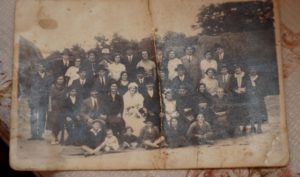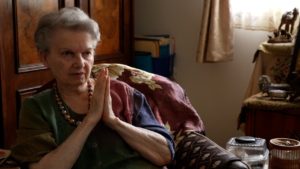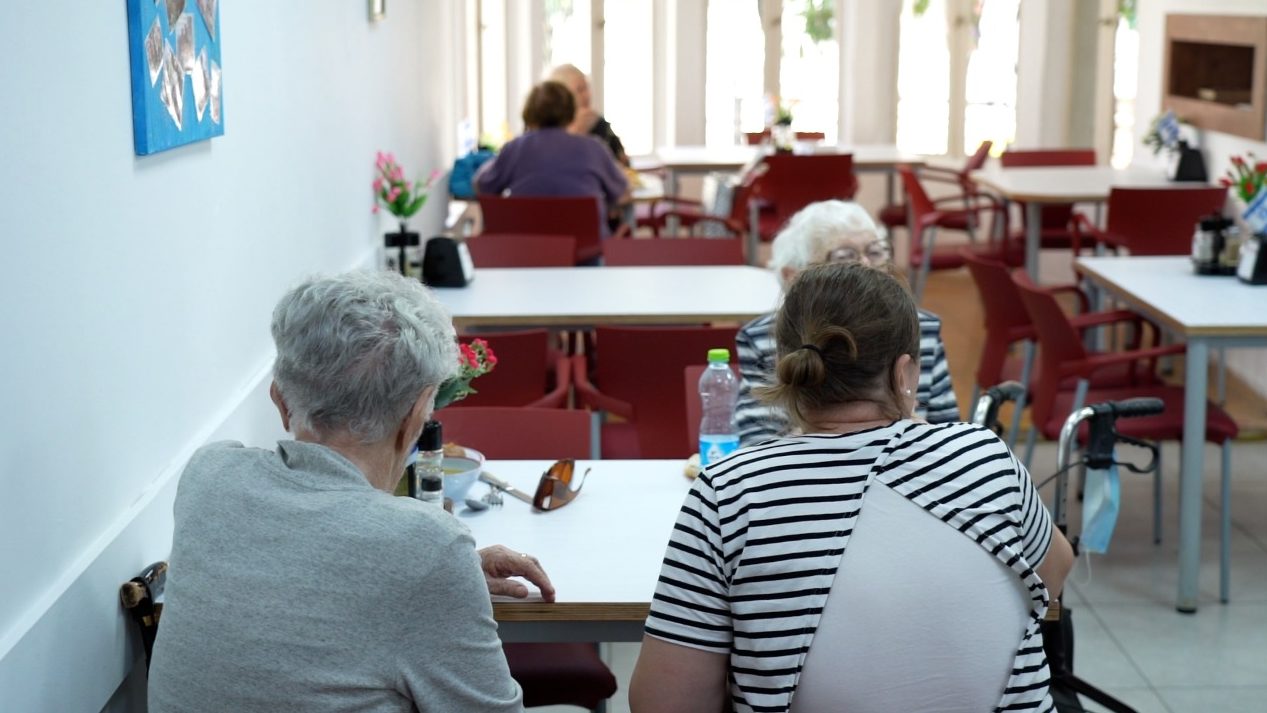Jews and Christians Come Together to Help Holocaust Survivors in Israel
500 survivors on waitlist for subsidized housing project jointly sponsored by Israeli foundation and Evangelical Christian organization
On a quiet and nondescript street in the northern Israeli city of Haifa, nearly 100 Holocaust survivors are living out their last days together and keeping the memories of a dark and often brutal past alive.
Israeli foundation Yad Ezer L’Haver (“A Helping Hand for a Friend”) and the International Christian Embassy in Jerusalem (ICEJ) have banded together to buy and transform residential buildings into special subsidized housing facilities for Holocaust survivors.
Launched over a decade ago, the joint venture is now expanding as more and more survivors struggle to make ends meet on their meager government stipends.
On a recent sunny afternoon, elderly women and men filed into the complex’s main dining hall for a hot meal – one of the first to be held communally since the COVID-19 pandemic made such activities all but impossible.
Among those eagerly waiting to be served was 93-year-old Judith Hershkowitz.
Born in a small village in eastern Hungary, she survived through one of the darkest chapters of modern history.

Holocaust survivor Judith Hershkowitz, 93. (Raymond Crystal)
When she was only 15 years old, the Nazis sent Hershkowitz and her entire family to the notorious Auschwitz-Birkenau extermination camp.
“The Nazis came to Hungary in 1944 when their [killing] machine was already well-oiled,” Hershkowitz recounted to The Media Line. “They took my entire family: my parents, grandmother, brother and sister. First off, they collected us and put us into ghettos and from there on to transports.
“When we got to Auschwitz-Birkenau, the selection began: men were on one side and women on the other,” she continued. “I was put to work in the camp and since then I have no idea what happened to my family.”
After the war ended, Hershkowitz eventually made it back to Hungary and searched for her missing family members.
“We were under the illusion that our parents were sent to work somewhere and that we would be able to see them again,” she said.
All that remained of her loved ones were memories and a single black-and-white photo taken during happier times before the war.
In 1948, Hershkowitz decided to leave Europe, immigrating to the newly formed state of Israel.

This photo shows Judith Hershkowitz’s family during happier times, at a family wedding, when she was only six years old. It is the sole picture that remains from before the war. (Raymond Crystal)
At the home for survivors in Haifa, she receives three hot meals a day, medical assistance and the opportunity to socialize with others who have had similar experiences.
“I found people I can speak a common language with,” she related. “Even though they may not have been at the same camp I was in they also went through the war and have their own stories. I’m happy here.”
Jews and Christians Together
Over the years and with the help of donations, Yad Ezer L’Haver and the ICEJ – an evangelical Christian organization – have managed to buy and renovate several buildings for Holocaust survivors.
“We started to bring people from abroad – especially from Germany – to renovate the buildings that we bought,” Yudit Setz, director of Holocaust Projects at the ICEJ, told The Media Line. “We started to have this wonderful thing that Jewish and Christian people started to work together.”
Aside from municipal tax refunds, they do not receive any financial assistance from the Israeli government. Volunteers, both local and international, help with everything from renovations to food deliveries and even provide on-site medical services such as physiotherapy.
Unfortunately, the steady stream of Christian volunteers – many of them from Germany, Switzerland or other European nations – has dwindled in the past year due to ongoing pandemic travel restrictions.
“A lot of Christian groups are very interested in Israel,” Setz noted. “They have a love for Israel and very much want to meet a Holocaust survivor.”
Survivors pay very little or nothing at all to live in the facility, depending on their financial situation.
Many of the estimated 180,000 survivors living in Israel are in need of regular financial assistance. More than half, some 51%, require food baskets on a regular basis and 45% reported having trouble covering their monthly expenses, according to recently released figures from the Foundation for the Welfare of Holocaust Victims. In addition to these economic hardships, a significant number of survivors, 25%, reported suffering from loneliness and lack regular contact with family members.
It should come as no surprise then that demand for the low-priced housing in Haifa has far outpaced supply.
For this reason, Yad Ezer L’Haver and the ICEJ are currently in the process of completing construction on a new building that will house an additional 22 survivors.

The main entrance to the Yad Ezer L’Haver housing complex in Haifa, Israel. (Raymond Crystal)
“There are more than 500 Holocaust survivors who are on the waitlist and who want to come live here,” Shimon Sabag, founder and director of Yad Ezer L’Haver, told The Media Line. “We don’t have room.
“The [government] should build these kinds of housing complexes throughout the country; in my opinion that would be the best solution even though it’s expensive,” he added.
A ‘Place of Peace’
Renate Kaufmann, 83, recently moved in to the complex after living in the United States for 50 years.
Born in Essen, Germany, Kaufmann’s parents helped her escape the horrors of the concentration camps by hiding her in a small village for the entirety of the war.
However, the woman who took her in was anything but kind-hearted.
“I was very unhappy there,” Kaufmann told The Media Line. “The lady was very nervous and beat me almost every day. That’s why I’m crippled.”
“She took a big baseball bat – like a big spoon – and hit my back, over a lie which I didn’t do,” she recalled.

Holocaust survivor Renate Kaufman, 83 (Raymond Crystal)
Kaufmann, who limps when she stands up, revealed that for years she was confined to a wheelchair and could barely walk. To this day, she says she still suffers from terrible pain as a result of what happened to her as child. Kaufmann documented her harrowing experiences in an autobiographical poetry book called “I Survived the Holocaust: My Life in Poetry” (Olive Press Publisher: 2012).
Thankfully, Kaufmann found a happy ending in Israel. In the midst of the pandemic, she moved into her cozy subsidized apartment last summer and has managed to quickly establish a thriving social circle.
“Now I have peace,” Kaufmann affirmed. “The people I meet are very friendly and the staff here couldn’t be any better!”
For the head of Yad Ezer L’Haver, which has provided food and assistance to survivors for the past 20 years, the goal is to give them peace of mind and allow them to live out their final days in comfort and dignity.
“There is not much time left to help Holocaust survivors,” he said. “Now is the time to right this historic wrong. Most of them are over 90 years old so now is the time to help.”

